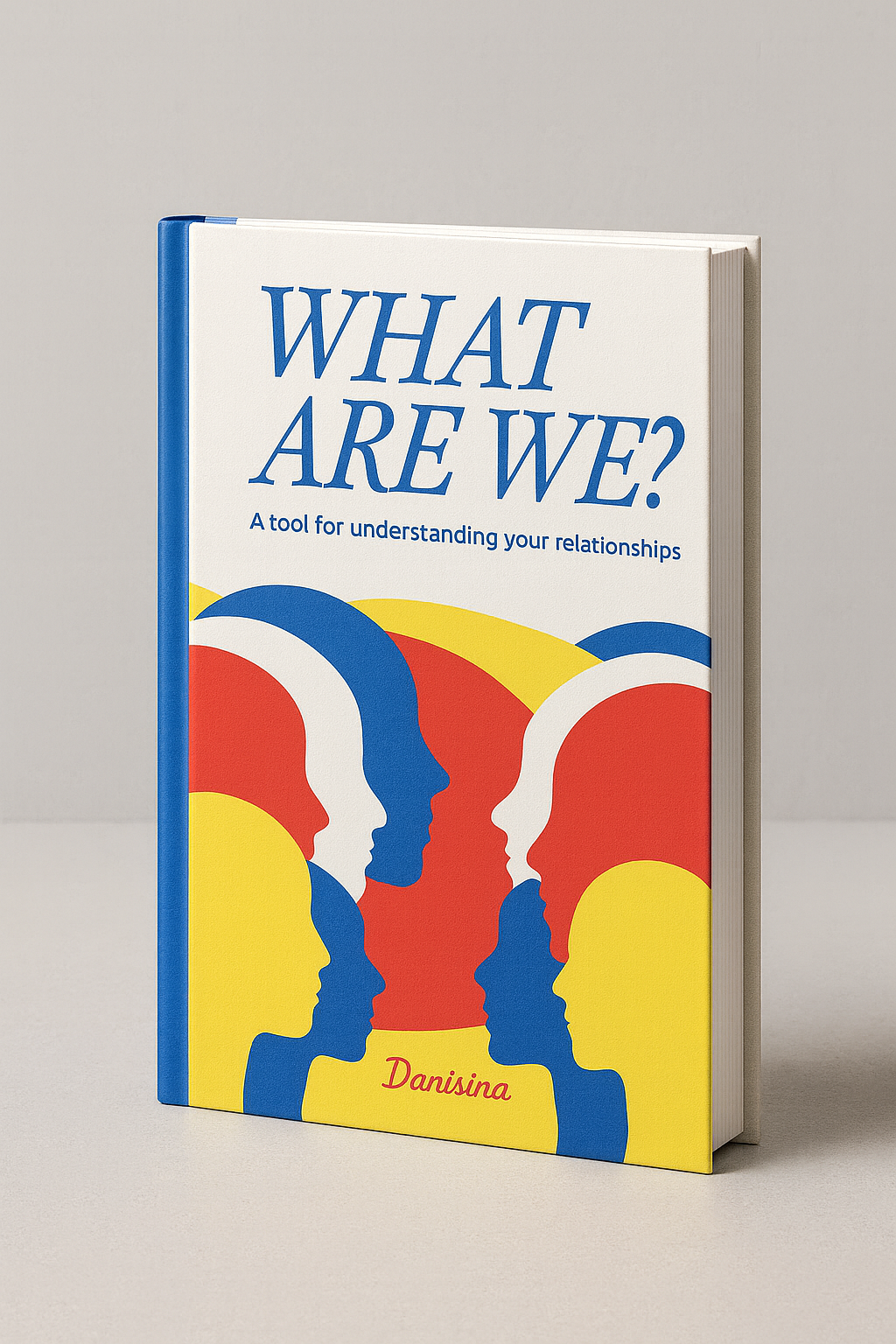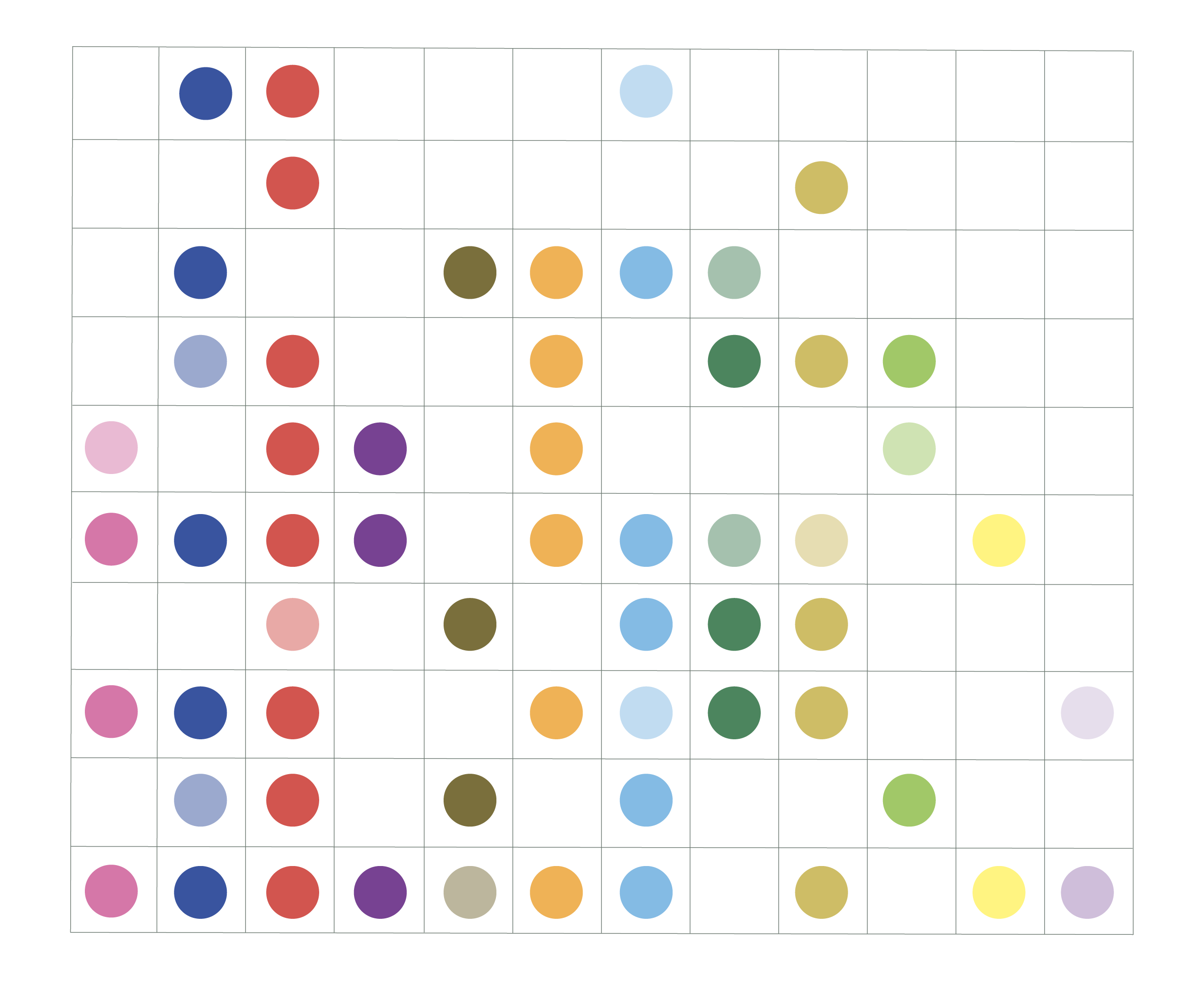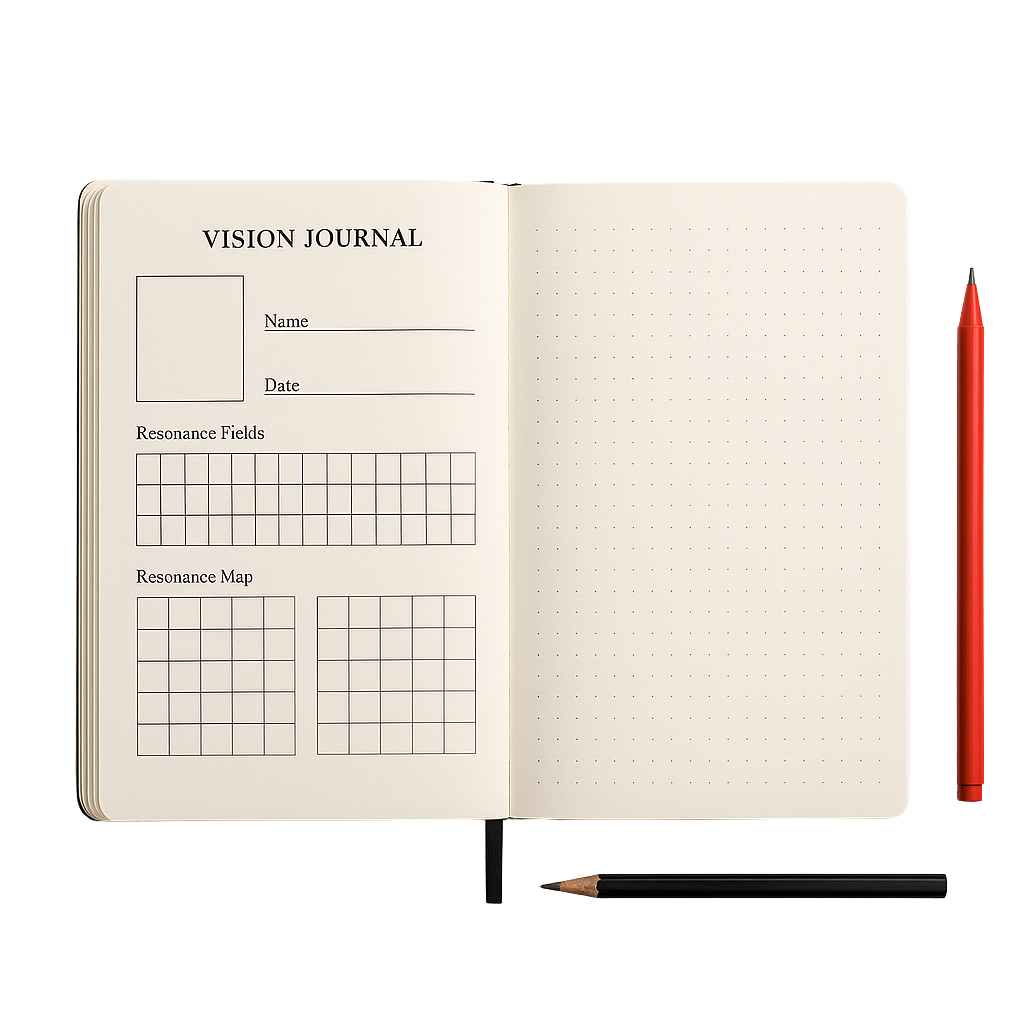Understanding Resonance Fields in Practice
A deep dive into how Resonance Fields manifest in everyday relationships and what they reveal about connection patterns.
A tool for understanding your relationships
Relational Code Theory (RCT) is a practical framework for mapping the real texture of your relationships. Instead of asking "What are we?", it invites a better question: "How do we actually relate?"
Through simple diagrams and guided reflections, you learn to see patterns, name dynamics, and make decisions that honour your time, energy, and sanity.
For individuals, therapists, coaches, and teams who want relational clarity without losing nuance.
A practical introduction to Relational Code Theory.
What Are We? is the first book based on Relational Code Theory. It guides you through the framework step by step, with stories, diagrams, and reflective prompts to help you test it in your own life.
You do not need any background in psychology or philosophy. The book is written in accessible language, so you can move from idea to application quickly.
What you will learn

Both editions contain the same core text. The main difference is the visual experience.
A framework you can use for a lifetime.
The Relational Code Theory tool is designed to be used more than once. The more you apply it, the more precise your sense of self and relationships becomes. You can use it privately in your journal, together with a partner, or as part of professional practice.

Example relational signature visualization
Dimensions such as emotional, physical, intellectual, spiritual, practical, social, aesthetic, sovereignty, play, adventure, co-regulation and psychic. Each field asks: What is the quality of our connection here?
A visual and written profile of how one relationship behaves across the resonance fields. It captures both numbers and narrative, so you do not lose nuance.
A bird's-eye view of your relational world. When you map several connections, you can see where energy is concentrated, where it leaks, and where there is unrealised potential.
Relational Code Theory is entering its digital phase.
Track your Relational Signatures over time
Identify shifts and recurring dynamics
Document key changes as they unfold
Our team is developing the digital tool where you will be able to log and visualise your Relational Signatures over time, track patterns, and reflect on key changes.
If your organisation or team would benefit from integrating this framework into your own software or systems, you're welcome to reach out through the contact form.
Limited Beta Access
The first 100 people to join the waitlist will receive free access to the beta version.
Printable templates and diagrams to support your practice.
The colour diagrams give you a clear, immediate view of your Relational Signature. They translate the Relational Code Theory system into a visual language so you can recognise patterns at a glance and understand how each field interacts with the others.
Included diagrams:
3 templates, PDF, ~2MB
The self-tracking sheet gives you a simple, one-page way to map a connection. It works alongside the questionnaire and the colour diagrams, offering a quick visual overview you can fill in and revisit over time.
Included in the sheet:
Coming Soon

Important note: This image of the Vision Journal has been provisionally generated with AI, the product is still in its design phase and will be launched when it's ready and tested by our team.
The Vision Journal brings the Relational Code Theory system into a calm, high-quality stationery format crafted with intention.
It guides you from the initial questionnaire into an ongoing practice where you can track your connections, map their Visual Signature, and reflect on how each relationship evolves over time.
Inside the journal
—Brief overview of the Relational Code Theory system
—Full Relational Signature questionnaire
—Space to map your key connections
—Name and date pages for each profile
—Self-filled bar charts for all resonance fields
—Visual Signature Map grid
—Bullet-point journaling pages that adapt to any style—writing, drawing, sketching, or free-form reflection
Join the waiting list to be notified when the Vision Journal launches
Notify MeRelational Code Theory began with a simple observation: most of our relationships do not fit neatly into the categories we try to force them into. The question "What are we?" rarely reveals the truth of a connection. What we need instead is a way to understand how we actually relate — with clarity, nuance, and honesty.
This project was created to offer that clarity. What started as one question became a framework. That framework became a book. And now it is growing into a set of tools anyone can use.
Relational Code Theory gives you a practical way to see your relationships more clearly—beyond labels, pressure, or guesswork.
What you get:
Whether navigating a friendship, partnership, family bond, or something undefined, RCT helps you understand what's really happening so you can act with confidence and alignment.
Relational Code Theory serves as a clarity tool for people who work with relationships in professional or organisational contexts.
Who uses it:
The framework offers a shared language for discussing connection, boundaries, and expectations without pathologising human behaviour.
Coming soon: Digital tracking systems, training materials, and custom integrations for clinical, educational, and workplace settings.

Danisina is a strategist, philosopher, and artist. Creator of Relational Code Theory, she investigates how health, connection, and collaboration form the backbone of thriving communities.
After a decade in strategic marketing for global companies, she sold everything she owned to explore what it means to live well. Between Albania, Kosovo, Greece, Spain, Italy, England, Austria, and Switzerland—where much of this book was written—she worked in unconventional roles and rebuilt her understanding of health, connection, and purpose.
Alongside her philosophical work, she is developing Consultora Mundo Sostenible with her father, a PhD in Agricultural Engineering and ESG strategist, as well as a sustainability, certification, and impact auditor. Together, they guide companies and producers in transitioning towards sustainability through systemic design and ethical governance.
Guided by a lifelong obsession with understanding what truly matters, she has come to see health—in body, in relationships, and in the collective systems we build—as the ground from which meaning and beauty grow.
For questions, collaborations, or integrating Relational Code Theory into your work.
We are a small team, we read every message, but we might need time to respond. Thank you for your patience.
Stories, conversations, and reflections on relationships, clarity, and the practice of understanding connection.
A deep dive into how Resonance Fields manifest in everyday relationships and what they reveal about connection patterns.
Therapists and coaches share their experiences using Relational Code Theory with clients.
Exploring the journey from intuition to framework and how RCT developed over time.
Blog content is currently in development. Check back soon for interviews and insights.